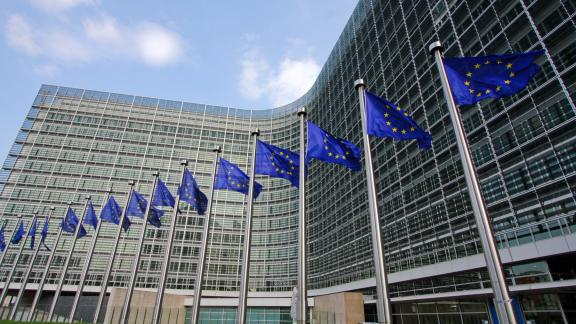A mandate for health? The impact on the NHS as EU and UK Brexit negotiations kick off

Talks on the future EU-UK relationship are due to start on Monday 2 March. Dr Layla McCay, director of international relations at the NHS Confederation, looks at what's in the proposals for the health of EU and UK citizens.
In preparation for Monday's talks, this week has seen the publication of both the EU and UK’s negotiating mandates. Although these only mark intentions, not agreements, they set out a roadmap for the negotiations that will define the future relationship. Given the focus on trade in the early part of the talks, the UK’s future regulatory regime has taken centre stage, and this has implications for the NHS and for patients.
A comprehensive free trade agreement
In its mandate, the EU has confirmed that they are looking for a broad economic partnership with the UK as a third country, with zero tariffs and zero quotas on goods entering the single market and agreements covering areas such as transport and energy. Their view is that in exchange for this ambitious trade deal, the UK should expect to offer and maintain matching "common high standards" in areas such as workers’ rights, environmental, tax and state aid matters.
The UK’s negotiating objectives set out a different vision. The government wants the ability to set laws that suit the UK, rejecting the concept of alignment with the EU. Despite this, in its mandate, the government does intend to uphold some of the same standards. This includes areas such as workers’ rights, which influence working hours and health and safety conditions, including for NHS staff.
The UK also proposes to include in the future relationship agreement elements that will benefit patients in terms of timely access to medicines and treatments, and that could help continuity of supply. For example, through mutual recognition of good manufacturing practice and batch testing of medicines, and cooperation between regulators to act promptly to safeguard patient safety and public health.
Other agreements
The UK also sets out ‘other agreements’, some of which will affect the NHS. These include exploring cooperation in specific areas where it is in the interest of both the UK and EU such as participation in certain EU research programmes such as Horizon Europe. Health security is also included in the EU mandate, seeking cooperation on prevention, detection and preparation for threats to public health, in a consistent manner.
Good news for patients is the UK’s acknowledgement of the benefit of arrangements that provide healthcare cover for tourists and short-term business visitors across the European region. To note for healthcare professionals, both mandates stated the intention for mutual recognition of professional qualifications with the EU.
What is next?
Although these are welcome intentions, we look forward to seeing the specific agreements that will come into action from 1 January 2021. For example, on protecting citizens’ rights, how will the replacement for the current EHIC system work and what will be the impact on frontline NHS staff managing cost recovery systems?
As we can see from both EU and UK mandates, health cuts across many different areas of the negotiations rather than being a specific focus topic. We believe there is a risk that some issues affecting the safety and health of patients and citizens could be overlooked as a result. As talks commence, we will focus on analysing the implications for patients, staff and the public, and helping ensure these key issues are properly discussed.
In our recent briefing, the NHS Confederation, alongside our colleagues in the Brexit Health Alliance, call for both sides of the negotiating table to prioritise patients. As part of this, we ask for the key elements of our UK-EU future relationship in health to be agreed as early as possible. Prompt, clear agreements will not only end the current uncertainty, reassure patients, and enable the NHS to prepare for any changes in good time; it will also help make sure the UK remains an attractive place to work and live and enable the NHS to take advantage of global opportunities for the benefit of patients.
Dr Layla McCay is director of international relations at the NHS Confederation. Follow them on Twitter @LaylaMcCay and @nhsconfed



